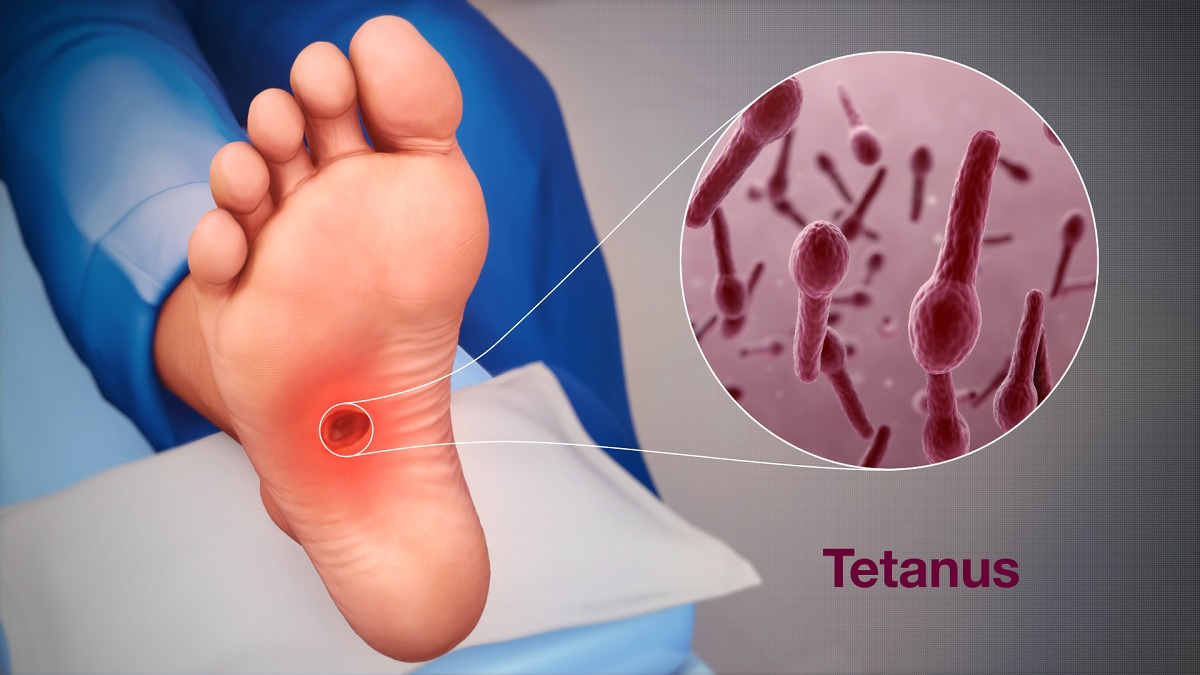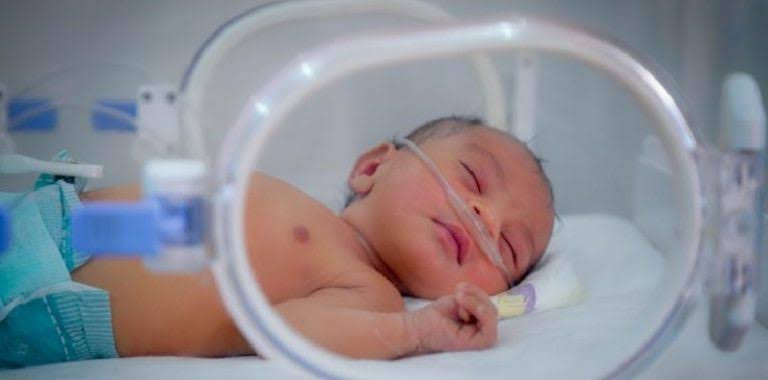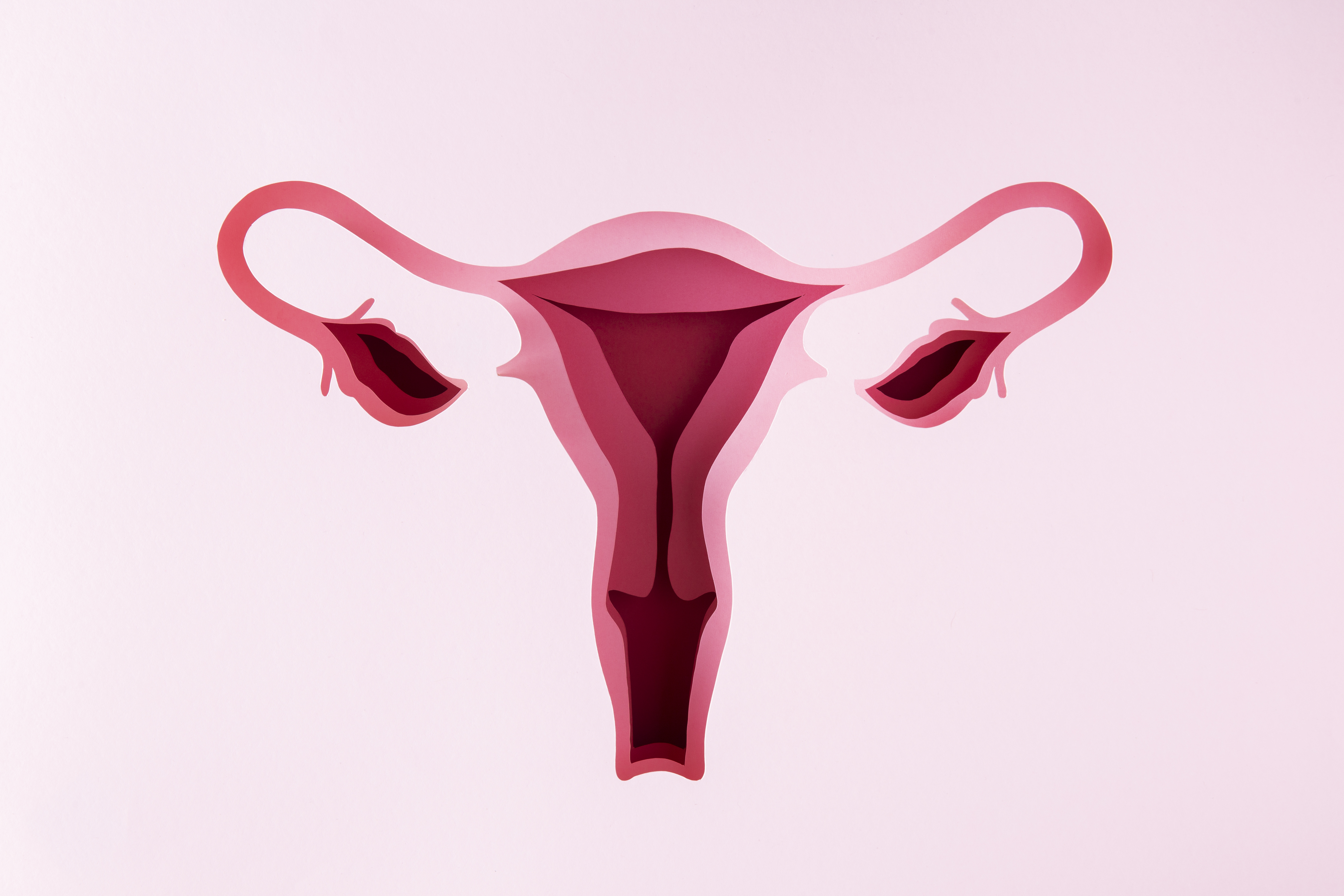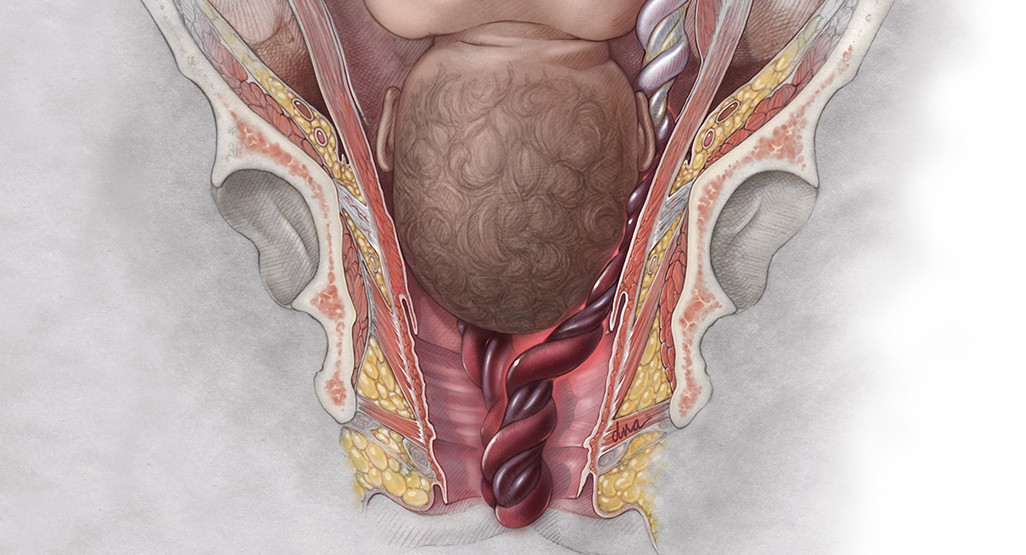Definition
Neonatal tetanus is a type of tetanus, which is a bacterial infection characterized by muscle stiffness throughout the body, along with jaw and neck pain. Neonatal tetanus affects newborns up to 28 days old, posing a high risk of causing death. In 2015, approximately 34,000 newborns died from neonatal tetanus.
Causes
Tetanus is caused by an infection with the bacteria Clostridium tetani, which is found in soil, dust, or animal manure. This bacterium can be found worldwide but is most commonly found in areas with warm and humid climates, which make the soil rich in organic matter. The bacteria can enter the human body through puncture wounds, scratches, injections with unsterile needles, or insect bites. The most common cause of infection is small, often unnoticed wounds, such as scratches from wood, iron, or plant thorns. The infection is more likely if the person has not been vaccinated against tetanus. However, the disease cannot be transmitted from person to person.
Neonatal tetanus is caused by an infection of the umbilical cord during childbirth. This can result from a lack of hygiene during delivery and incomplete tetanus immunization of the mother. The infection most commonly occurs from cutting the umbilical cord with an unsterile instrument.
Risk factor
Neonatal tetanus is more likely to occur in babies born to mothers who are not vaccinated against tetanus, born at home or without professional medical assistance, whose umbilical cords are cut with unsterile instruments, to mothers with a history of having a baby affected by neonatal tetanus, and from applying substances that can infect the umbilical cord, such as animal manure or mud.
Symptoms
Symptoms of neonatal tetanus include muscle stiffness throughout the body, beginning with the inability of the baby to drink or suckle breast milk, and excessive crying (irritability). Muscle stiffness can be triggered by touch. This muscle stiffness is called opisthotonus, involving the muscles of the head, neck, and back, forming an arch. Additionally, the baby's face may appear grimacing, and the baby may be unable to open its mouth. These symptoms usually appear between the 3rd and 10th day after birth.
When muscle stiffness occurs, blood circulation can also be disrupted. Blood pressure and heart rate become very unstable. In severe cases, heart attacks can occur.
Diagnosis
The diagnosis of neonatal tetanus is based on the symptoms observed in the baby. According to the World Health Organization (WHO), neonatal tetanus is diagnosed if a baby can drink breast milk and cry normally within the first 2 days after birth, but then loses this ability between the 3rd and 28th day and becomes stiff or experiences sudden muscle contractions without being aware of it.
Laboratory tests are not necessary to diagnose this disease.
Management
Neonatal tetanus is an emergency condition that requires intensive hospital care. Treatment includes the injection of passive immunity against tetanus, known as human tetanus immunoglobulin (TIG). This injection should be administered as soon as possible to prevent the worsening of the disease. If this immunoglobulin is not available, an alternative is the use of anti-tetanus serum injected into the bloodstream. However, an allergy test must be conducted before serum administration. Another alternative is the injection of immunoglobulin into the bloodstream, known as intravenous immunoglobulin (IVIG).
Additionally, treatment involves administering medications to control muscle contractions and antibiotics to treat the infection. These medications can be administered by injection.
Other measures to support the care of a baby with tetanus include placing the baby in a dark and quiet place to reduce the risk of muscle contractions due to reflexes. A feeding tube will be used to ensure the baby receives optimal nutrition and to prevent fluids from entering the respiratory tract. If muscle stiffness affects the entire body, the airway will be kept open and monitored closely to prevent respiratory failure and circulatory instability in the baby.
After recovering from tetanus, the baby should receive tetanus vaccinations according to their age. Tetanus vaccination for children is required six times. The first three vaccines are given at 2, 3, and 4 months of age, along with diphtheria and pertussis (whooping cough) vaccines, forming the DTP (diphtheria, tetanus, pertussis) combination. The next three are booster doses to strengthen immunity, administered at 18 months, 5-7 years (according to the school immunization schedule), and 10-18 years.
Moreover, mothers should receive tetanus vaccinations, known as tetanus toxoid (TT), five times. This vaccination is needed to reduce the risk of tetanus in both mother and baby during pregnancy and childbirth.
Complications
The mortality rate for neonatal tetanus is 90-100%. If a baby survives, it may experience developmental delays, behavioral issues, and impaired movement, speech, and language abilities.
Prevention
Preventing neonatal tetanus involves tetanus vaccination for women of childbearing age, women planning to marry, and pregnant women. This vaccination is administered at least three times, and completed in five doses. If a mother has never been vaccinated against tetanus or her vaccination history is unknown, the first dose is given during antenatal care, the second dose one month later, the third dose six months after the second, the fourth dose one year after the third, and the fifth dose one year after the fourth. For mothers who have previously been vaccinated against tetanus, a booster dose may be necessary.
The TT vaccine, which is safe during pregnancy and highly recommended, is given. If the mother is ill during an antenatal visit, the vaccination can be done immediately after recovery. Vaccinated mothers pass passive immunity to their babies, which can last for several months.
Furthermore, preventing neonatal tetanus includes regular antenatal care at the nearest healthcare facility to ensure proper pregnancy and delivery planning. Deliveries must be conducted with sterile equipment, especially when cutting the umbilical cord. If the mother undergoes surgery or dental procedures, sterilization of instruments and proper wound care are essential.
When to see a doctor?
See a doctor immediately if you notice a newborn unable to drink breast milk and experiencing muscle stiffness a few days after birth. This can indicate neonatal tetanus. Also, if you or your partner is pregnant, ensure that the pregnant mother regularly attends antenatal care at the nearest healthcare facility and completes the tetanus vaccination doses. This is crucial to prevent tetanus in both mother and child. For neonatal tetanus, prevention is essential due to the high mortality and disability rates associated with the disease.
- dr Ayu Munawaroh, MKK
Bae, C., & Bourget, D. (2021). Tetanus. Retrieved 27 December 2021, from https://www.ncbi.nlm.nih.gov/books/NBK459217/
Hinfey, P. (2019). Tetanus: Background, Pathophysiology, Etiology. Retrieved 27 December 2021, from https://emedicine.medscape.com/article/229594-overview#showall
IDAI | Jadwal Imunisasi IDAI 2020. (2020). Retrieved 27 December 2021, from https://www.idai.or.id/tentang-idai/pernyataan-idai/jadwal-imunisasi-idai-2020
Neonatal Tetanus. Retrieved 27 December 2021, from https://www.who.int/immunization/monitoring_surveillance/burden/vpd/WHO_SurveillanceVaccinePreventable_14_NeonatalTetanus_R1.pdf
Tetanus. (2018). Retrieved 27 December 2021, from https://www.who.int/news-room/fact-sheets/detail/tetanus












